Pregnancy Complications
Infant- and Family-Centered Developmental Care
Respiratory Infections
Neonatal Eye Health
Hygiene
Rare Diseases
The Scientific Advisory Board is a committee of globally renowned medical experts and scientists who provide GFCNI with specialized knowledge in neonatal and maternal care. This board offers guidance to the Trustee Board and Executive Board on medical matters. Members serve in an honorary capacity and do not receive any salary or compensation for their role.
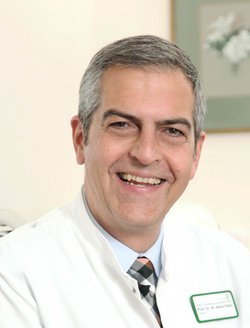
Professor Michael Abou-Dakn is the Head Physician of the Department of Gynecology and Obstetrics and the Medical Director at St. Joseph's Hospital in Berlin-Tempelhof. Specializing in perinatology and obstetrics, he holds multiple qualifications, including certification as a breastfeeding expert. He is a former president of the WHO/UNICEF Baby-Friendly Hospital Initiative in Germany and is a member of several professional organizations, including the National Breastfeeding Committee. Professor Abou-Dakn currently chairs the Working Group for Obstetrics and Perinatal Medicine (AGG) of the German Society for Gynecology and Obstetrics (DGGG) and is active in international organizations such as FIGO and WHO. In 2013, he was appointed Professor of Obstetrics in the midwifery program at the Evangelische Hochschule Berlin. He also holds teaching positions at the University of Lübeck and the University of Applied Sciences in Vienna, among other institutions.
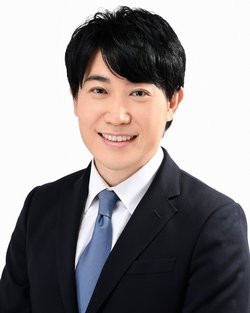
Dr. Takeshi Arimitsu is a neonatologist in the Department of Pediatrics at Keio University Hospital School of Medicine. He gained international recognition as the attending physician for a baby boy born weighing just 268 grams, who was discharged in good health without serious complications in February 2019.
Dr. Arimitsu takes a holistic approach to neonatal care, integrating medical expertise with family involvement to support infants and their long-term development. He has launched a nationwide initiative in Japan to build a support network for babies and their families. His contributions to the field include authoring textbooks on developmental care and publishing research on non-invasive functional neuroimaging. He is also a sought-after speaker, delivering numerous lectures on neonatal medicine and developmental care.
In addition to his clinical and academic work, Dr. Arimitsu has served in various leadership roles on medical committees in Japan, including the Japan Society for Neonatal Health and Development and the Japan Society of Perinatal and Neonatal Medicine. Over the past decade, he has been awarded multiple research grants by Japan’s Ministry of Education, Culture, Sports, Science and Technology.
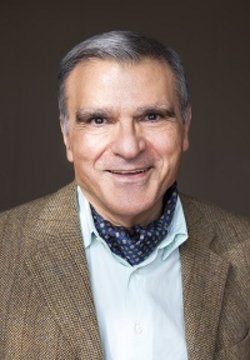
Professor Giuseppe Buonocore is a distinguished expert in pediatrics and neonatology. He is a former Director of the Pediatric Neonatology Unit and former Chairman of Pediatrics and Neonatology at the University of Siena’s Specialization Program in Pediatrics.
With over 420 scientific publications in high-impact international journals (H-index: 59, 12.70 citations), Professor Buonocore has made significant contributions to neonatal research. He is the co-editor of the widely recognized textbook Neonatology: A Practical Approach to Neonatal Diseases (Springer-Verlag). His research focuses on neonatal brain injury mechanisms, the role of free radicals in neonatal disease, and birth asphyxia. Additionally, his interests extend to perinatal ethics and the prevention of fetal and neonatal pain.
Professor Buonocore is an active member of the GFCNI Scientific Advisory Board and serves as President Emeritus of the Italian Academy of Pediatrics, College of University Professors of Pediatrics (IAP-COPED). He is a past president of both the European Society for Pediatric Research (ESPR) and the Union of European Neonatal and Perinatal Societies (UENPS), where he currently serves as Secretary. He is also an honorary member of the Ibero-American Society of Neonatology (SIBEN).
In addition to his research and leadership roles, Professor Buonocore is the Editor-in-Chief of Global Pediatrics (Elsevier) and Current Pediatric Reviews (Bentham Science Publishers).
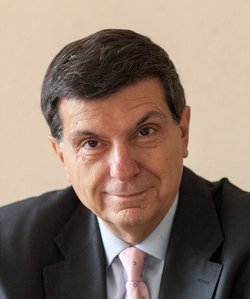
With more than 35 years of experience, Professor Gian Carlo Di Renzo has been a leading force in advancing maternal-fetal care. He serves as Professor and Chairman of the Department of Obstetrics and Gynecology at the University of Perugia, Italy, and has worked extensively at both national and international levels to raise standards in the field. His contributions include teaching, developing clinical guidelines, and coordinating international and national medical societies.
Professor Di Renzo has organized and hosted numerous international congresses and courses and has served as President of the World Congress series. He has been invited as a speaker and/or chairman at over 1,300 international and national congresses, meetings, and courses in 90 countries. His academic contributions include more than 1,200 published papers in international journals and 75 books.
A highly awarded medical expert, Professor Di Renzo is dedicated to pioneering research in the most critical areas of obstetrics and maternal-fetal medicine.
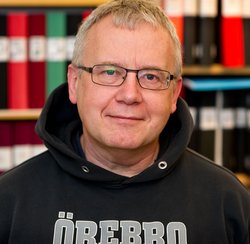
Professor Mats Eriksson is a professor of nursing science with a special focus on pediatric nursing at Örebro University in Sweden. With over 40 years of experience in neonatal intensive care, he was the first Swedish nurse to introduce the NIDCAP concept in Sweden. Professor Eriksson also serves as a scientific advisor in neonatology to the National Board of Health and Welfare in Sweden.
His research primarily focuses on pain and stress in newborns and older children, as well as breastfeeding and parental support. He leads the international research group PEARL – Pain in Early Life and is a member of both the European Society of Paediatric and Neonatal Intensive Care and the Special Interest Group on Pain in Childhood of the International Association for the Study of Pain.
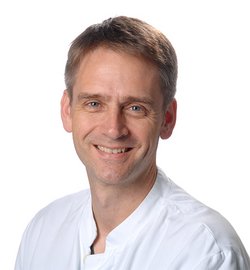
Professor Andreas W. Flemmer is the Head of Neonatology at the Children’s Hospital and Perinatal Centre at Ludwig Maximilian University (LMU) Munich, Germany. In 2016, he was appointed Associate Professor of Neonatology in the Department of Pediatrics at LMU Munich.
A board-certified neonatologist and pediatrician, Professor Flemmer completed a postdoctoral research fellowship at Yale University School of Medicine in New Haven, USA, and has since served as a visiting academic in both Australia and the United States.
He has been actively involved in several GFCNI projects, including the Human Milk Bank initiative and the European Standards of Care for Newborn Health project.
In 2018, he was appointed Chair of the collaboration between GFCNI and the International Consortium for Health Outcomes Measurement (ICHOM) for patient-focused health outcomes.
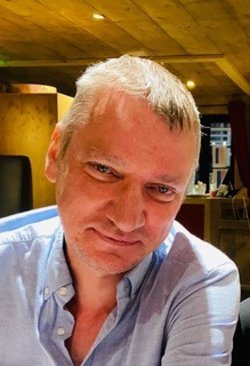
Professor Pierre Gressens is a distinguished expert in child neurology and neonatal brain research. He earned his medical degree in Brussels, Belgium, in 1989 and completed his PhD at the University of Louvain Medical School in 1995. Specializing in child neurology, he pursued postdoctoral research under the renowned scientist Professor Phil G. Nelson at the National Institutes of Health in Bethesda, Maryland, USA. Since 1995, he has been both a researcher and child neurologist at Robert Debré Hospital in Paris, France.
Currently, Professor Gressens serves as Director of the Laboratory U1141 Inserm – Université Paris Cité and as a Consultant in the Department of Child Neurology at Robert Debré Hospital. His research focuses on diseases of the developing brain, with a special emphasis on the encephalopathy of prematurity. He has introduced groundbreaking concepts in understanding the pathophysiology of neonatal brain damage and is dedicated to improving therapeutic strategies for these conditions. He also leads the European Union’s Horizon 2020 PremSTEM project, which explores the use of human mesenchymal stem cells for treating encephalopathy of prematurity.
With over 340 original research papers and 220 review papers and book chapters published (H-index: 100), Professor Gressens has significantly influenced the field. He has delivered more than 425 invited lectures and seminars worldwide and has mentored numerous young medical and non-medical scientists from various countries at his Paris-based laboratory.
His work has earned him several prestigious awards, including the Jean Hamburger Award from the City of Paris. His research has been supported by funding from Inserm, Université Paris Cité, the French National Agency for Research, the French Ministry for Research and Technology, the European Union, the Leducq Transatlantic Foundation, the French-Indian Cefipra, and various charitable organizations.
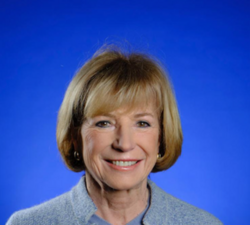
Dr. Dominique Haumont is a pediatrician and neonatologist who served as Professor and Chairman of the Neonatal Unit at Saint-Pierre University Hospital in Brussels, Belgium, from 1985 to 2015. Her scientific expertise spans neonatal nutrition and intravenous lipid emulsions, respiratory distress syndrome and surfactant treatment, oxidative stress and DNA damage, early developmental care, big data, and neonatal international networks. As one of the pioneers moving from traditional intensive care to developmentally supportive, family-centered care, Dr. Haumont has led several national and international initiatives.
She served as President of the Belgian Society of Neonatology (2004–2007) and of the College of Physicians, Section Neonatology at the Belgian Federal Public Health Services (2009–2013). Her European contributions include active roles on the boards of the European Association of Perinatal Medicine (EAPM), the European Society of Pediatric Research (ESPR)—where she has served as Database Officer—the European Association of Developmental Care (EADCare), the NIDCAP Federation International (NFI), the European Chinese Perinatal Network (ECPN), and the European Foundation for the Care of Newborn Infants (now GFCNI).
In 2016, she received the prestigious Maternity Prize from the EAPM, awarded biennially to a leading contributor in perinatal medicine.
In 2014, she established the eNewborn initiative to support benchmarking across Europe; Professor Neena Modi of Imperial College London later joined as co-director. Dr. Haumont has since retired from clinical practice, with eNewborn now operating as a global network under Professor Modi’s leadership.
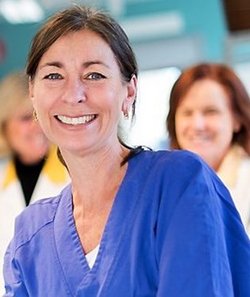
Professor Ann Hellström is a renowned expert in pediatric ophthalmology, specializing in Retinopathy of Prematurity (ROP). She earned her MD in 1986 and completed her PhD in 1997, becoming a specialist in ophthalmology in 2004. Since then, she has served as a Professor of Pediatric Ophthalmology at the Sahlgrenska Academy, University of Gothenburg.
A leading researcher in ROP, Professor Hellström’s scientific contributions have gained worldwide recognition. She pioneered the concept that low levels of the growth factor IGF-I can cause blindness in preterm infants. Additionally, her research team developed a web-based screening tool for predicting retinopathy, significantly reducing the need for stressful examinations in these vulnerable patients. This tool is now used routinely in clinical practice worldwide.
Professor Hellström’s groundbreaking work has earned her numerous national and international awards. In 1997, she received an award from the Knut and Alice Wallenberg Foundation as a promising female researcher, and in 2012, she was awarded the Athena Prize, Sweden’s most prestigious prize for clinical research.
In addition to her research, Professor Hellström serves as a consultant physician in pediatric ophthalmology at Sahlgrenska University Hospital. She also leads the Sahlgrenska Center for Pediatric Ophthalmology Research at the Institute of Neuroscience and Physiology at the University of Gothenburg. Under her leadership, the center has become a leading translational research hub, integrating basic and clinical research to explore the mechanisms behind the neurovascular disease ROP, ultimately working toward the development of new treatments.
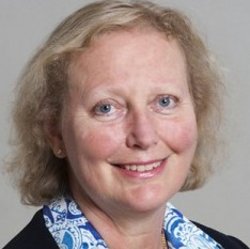
Professor Lena Hellström-Westas, MD, PhD, is a neonatologist and Emeritus Professor of Perinatal Medicine at Uppsala University, Sweden. Her research focuses on early identification and intervention for newborns and young children at risk of neurodevelopmental problems.
A pioneer in neonatal neuromonitoring, Professor Hellström-Westas' groundbreaking research on amplitude-integrated EEG (aEEG) demonstrated that early detection of asphyxiated and preterm infants at risk for seizures and brain injury is possible. Her current research explores visual tracking and biological motion in relation to the neurodevelopment of very preterm infants.
She is a member of the Swedish Neonatal Society and the European Society for Pediatric Research. Throughout her career, she has held several leadership roles, including serving on the board of the European Association of Perinatal Medicine (EAPM), as President of the Swedish Pediatric Association, as Medical Co-Director of the Karolinska NIDCAP Center (2000–2021), and as Scientific Advisor in Neonatology to the Swedish National Board of Health and Welfare (2006–2025).
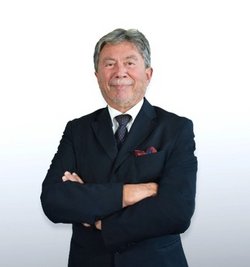
Professor Moshe Hod is a Professor of Obstetrics and Gynecology at the Faculty of Medicine, Tel Aviv University, Israel, and a Visiting Professor at the University of Florence, Department of Obstetrics and Gynecology, Italy.
A globally recognized leader in maternal-fetal medicine, Professor Hod has held several prominent positions in the field. He is the Chair of the International Federation of Obstetrics and Gynecology (FIGO) Femtech – New Technologies and Global Women’s Health Committee. Previously, he served as Director of the Maternal-Fetal Medicine Division at the Helen Schneider Women’s Hospital, Rabin Medical Center, Israel, and was President of the European Association of Perinatal Medicine (EAPM). Additionally, he was Chairman of the Pregnancy and NCD Committee at FIGO and served as a Board Member of FIGO.
Professor Hod is the editor of the Textbook of Diabetes and Pregnancy (4th Edition, 2025) and has authored more than 350 scientific publications. He is regarded as one of the world’s leading experts in the research and management of diabetes and other pregnancy-related complications.
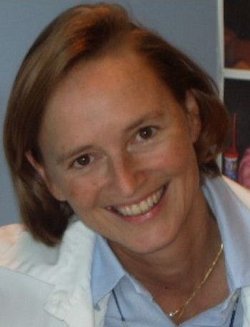
Professor Petra Hüppi is a pediatrician and neonatologist, serving as Division Chief of the Division of Child Development in Geneva, Switzerland. She also holds an international research position as a Visiting Scientist at Harvard Medical School in Boston, USA.
A member of the Swiss Academy of Medical Sciences, Professor Hüppi has led numerous research projects at both Harvard Medical School and the University of Geneva, focusing on early human brain development. Her research group has successfully applied quantitative volumetric MRI and advanced diffusion imaging techniques to study hundreds of newborn infants, identifying key anatomical and temporal characteristics of brain development—critical for understanding brain injury in preterm and term infants.
In addition to her research, Professor Hüppi directs the Child Development Unit at the Children’s Hospital, which provides specialized care for children at risk of early neurodevelopmental problems, including managing the Infant Follow-up Program for preterm infants.
As a neonatologist, she combines extensive expertise in newborn physiology and pathophysiology with advanced knowledge in neuroimaging techniques, linking brain development with long-term functional outcomes in preterm children.
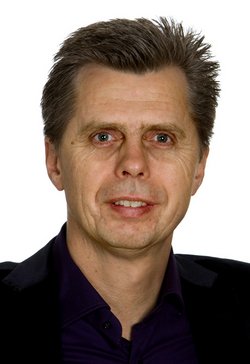
Professor Bo Jacobsson is a leading expert in obstetrics and maternal-fetal medicine. He earned his medical degree from Sahlgrenska Academy, Gothenburg, Sweden, in 1991 and completed his PhD at Gothenburg University in 2003. Following his doctoral studies, he pursued postdoctoral research training at Aarhus University, Denmark. He has also served as a Guest Professor at Rikshospitalet, Oslo, Norway, and currently directs the Perinatal Research Laboratory at Sahlgrenska University Hospital in Gothenburg, where he also practices clinical obstetrics. Additionally, he is affiliated with the Norwegian Institute of Public Health.
Professor Jacobsson’s research focuses on the mechanisms of preterm birth, including genetic factors influencing the timing of delivery and the interaction between genes and the environment. One of his key areas of interest is the prevention of preterm birth through dietary interventions, such as probiotics, with the ultimate goal of identifying effective strategies to ensure healthy, full-term births.
In addition to his research, Professor Jacobsson is committed to training the next generation of scientists, mentoring researchers from across Europe and Africa at his laboratory.
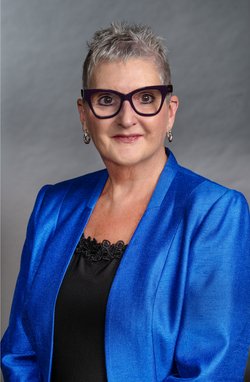
Professor Linda Johnston is the Vice-President of the University of Toronto and the Principal of the University of Toronto Scarborough. Previously, she served as Dean of the Lawrence Bloomberg Faculty of Nursing at the University of Toronto and held senior administrative roles at Queen’s University Belfast and The University of Melbourne, where she held Australia’s first Chair in Neonatal Nursing Research. Professor Johnston is a Distinguished Visiting Professor at Soochow University and Zhejiang University in China, as well as at the Chinese University of Hong Kong. She is a Fellow of the American Academy of Nursing, the European Academy of Nursing Science, the Australian College of Neonatal Nurses, and the Canadian Academy of Health Sciences. Her research interests include evaluating the impact of global health initiatives on neonatal care, and her policy work focuses on developing clinical academic career pathways and advancing the nursing profession in low- and middle-income countries. Professor Johnston also lends her expertise to the Scientific Advisory Board of GFCNI.
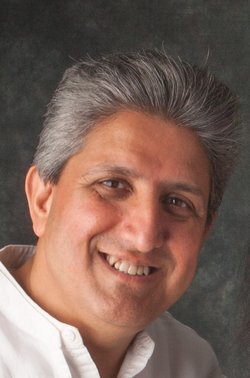
Professor Minesh Khashu, M.B.B.S, MD, FRCPCH, FRSA, Q Fellow, is a Consultant Neonatologist and Professor of Perinatal Health, specializing in system-wide transformation, continuous quality improvement, and patient-centered care. His research and improvement efforts focus on necrotizing enterocolitis (NEC), neonatal nutrition, and fathers’ experiences in neonatal care.
After training and practicing medicine in India, Canada, and England, Professor Khashu became Chief of the Neonatal Service at Poole Hospital (now part of University Hospitals Dorset) within the British NHS. Over a decade, he successfully led the service through a quality improvement journey. Until March 2021, he served as Clinical Director for the Maternity & Neonatal Strategic Clinical Network at NHS England Wessex and Hampshire & Thames Valley. Currently, he is a Non-Executive Director for a major ambulance and emergency care organization in the UK and actively contributes to various neonatal and maternity professional groups and committees. From 2013 to 2019, he was a senate member on the National Clinical Reference Group for Neonatal Care.
Professor Khashu's leadership and dedication to continuous improvement have driven the development of DadPad Neonatal, the conception of SIGNEC (Special Interest Group NEC), and numerous other regional and national improvement projects.
Recognized for his vision, compassion, and ability to inspire individuals and teams, Professor Khashu is a resilient and determined problem solver, as well as an effective and supportive team leader committed to developing and empowering talent. He is also a respected mentor and clinical teacher.
Believing that "collaboration is the most critical innovation required in healthcare today," he is eager to contribute his expertise to the Scientific Advisory Board of GFCNI.
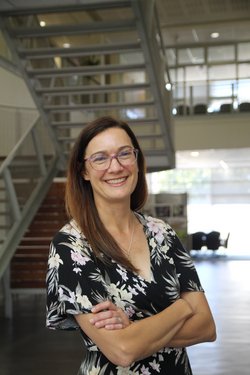
Dr. Mary Kinney is a Senior Lecturer with the Global Surgery Division at the University of Cape Town. A recognized advocate and researcher for women’s and children’s health, she has over 20 years of experience working in the African region. Dr. Kinney holds a PhD in Public Health from the University of the Western Cape and a Master’s in International Relations from the University of Cape Town. She is an Editor for BMC Reproductive Health and has published extensively in peer-reviewed journals and policy reports. Her leadership contributions include roles in high-impact reports such as "Born Too Soon: Decade of Action on Preterm Birth," the "Every Newborn Action Plan," The Lancet’s "Ending Preventable Stillbirth" series, and The Lancet’s "Every Newborn" series. Dr. Kinney serves on several global and national technical working groups, including the AlignMNH Steering Committee, the International Stillbirth Alliance, the MPDSR Technical Working Group, and the Countdown to 2030 Health Policy and Systems group. She is passionate about using data for action and ensuring respectful, family-centered care throughout the maternal, newborn, and child health continuum.
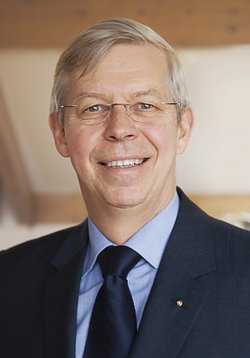
Professor Berthold Koletzko is the Else Kröner Senior Professor of Pediatrics at LMU University Munich and Head of the Division of Metabolic and Nutritional Medicine at Dr. von Hauner Children’s Hospital, LMU University Hospital in Munich, Germany. His research focuses on the metabolic and nutritional mediators of health and disease. Professor Koletzko has coordinated several European research projects and has authored over 1,200 scientific journal articles, 256 book chapters, and 48 books or monographs. With a Web of Science H-index of 103 and over 40,600 citations, Research.com (2025) rated him as the highest-ranked German researcher in pediatrics. He has received numerous honors, including the Distinguished Service Award from the European Society for Pediatric Gastroenterology, Hepatology and Nutrition (ESPGHAN), Honorary Membership with Distinction from the Colombian Society for Neonatology, and the Great Medal of Honor from the University of Rzeszow in Poland. Professor Koletzko serves as President of the European Academy of Pediatrics and is a member of the Strategic Advisory Group on Nutrition for the International Pediatric Association as well as the Committee on Nutrition for the German Society of Pediatrics. He is a Past President of ESPGHAN, the Federation of International Societies of Pediatric Gastroenterology, Hepatology, and Nutrition (FISPGHAN), and the International Society for Research on Human Milk and Lactation (ISRHML).
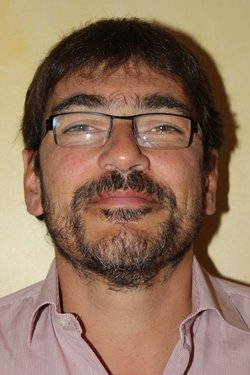
Professor Pierre Kuhn, MD, PhD, is a Professor of Pediatrics at the University Hospital of Strasbourg, France, and a senior neonatologist serving as Head of the Neonatal Department at the hospital. Additionally, he is an invited researcher at the Karolinska Institute in Stockholm, Sweden.
As a neuroscience researcher at the Centre National de la Recherche Scientifique (CNRS) and an affiliated researcher at the Karolinska Institute, Professor Kuhn focuses on understanding the impact of the hospital environment on the sensory systems and brain development of very preterm infants. His research also examines the long-term effects of adverse childhood experiences on development and evaluates infant- and family-centered developmental care strategies in neonatal medicine.
Professor Kuhn has published extensively in national and international journals and books. He serves as President of the Scientific Committee of the Société Française de Néonatologie and coordinates the Group of Reflection and Evaluation of the Environment of Newborn Infants (GREEN) in France.
In addition, he is an active member of the GFCNI Scientific Advisory Board and serves as Chair of the Topic Expert Group on Infant- and Family-Centered Developmental Care for the European Standards of Care for Newborn Health.
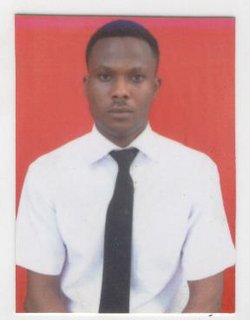
Ephraim Kumi Senkyire is a Registered General Nurse with a Bachelor of Science in Nursing (Pediatrics) from the University of Ghana, awarded in 2014. He has over three years of clinical experience across various areas of nursing, with a strong focus on child health, and more than four years of experience as a teaching assistant.
His scientific interests include maternal and child health, family-centered care, healthcare education, and allied health-related topics. He is an active member of several international professional groups, including the Neonatal Care Academy (NCA), Africa Palliative Care Association (APCA), and Sigma Theta Tau International (STTI).
Mr. Kumi has published two articles in peer-reviewed journals, including the Journal of Health Education Research & Development and the International Journal of Educational Research & Development. His future research will focus on exploring women's experiences with preterm infants through a mixed-methods approach, with a specific emphasis on Kangaroo Mother Care (KMC). His goal is to gain an in-depth understanding of mothers’ experiences in providing KMC to improve neonatal and maternal healthcare practices.
Additionally, he is a member of the global health network Towards Unity for Health (TUFH).
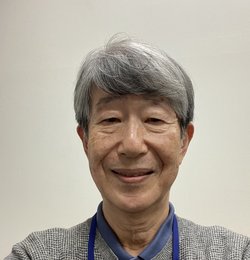
Professor Satoshi Kusuda, MD, PhD, is a Clinical Professor at Tokyo Healthcare University and serves as a Neonatal Consultant at Kyorin University. A graduate of Osaka City University’s medical school, he is a board member of the Japanese Society for Perinatal and Neonatal Medicine and a past President of the Federation of Asia and Oceanian Perinatal Societies. His primary research interests include the development and analysis of a neonatal network database. Under his leadership, the Japan Network Database has registered around 90,000 very preterm infants and has been the basis for more than 100 peer-reviewed publications. Professor Kusuda is also the Chief Editor of the NICU Manual (available at Elsevier’s website).
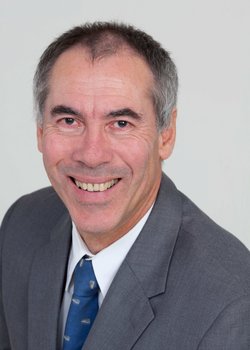
Dr. Nicholas Lack is a statistical consultant and former Section Head of Statistical Methods in Perinatology, Neonatology, Gynecology, and Breast Cancer Surgery at the Bavarian Institute for Hospital-Based Quality Assurance (BAQ) in Munich, Germany. With over 35 years of international experience in maternal and child health, he has held government health administration positions in both the United Kingdom and Germany.
His specialty lies in hospital benchmarking for quality of care. For more than 15 years, he has participated in international collaborations, including cross-country comparisons of perinatal health (as part of the EURO-PERISTAT working group) and causal analyses of rare obstetric events and their prevention through the International Obstetrics Surveillance System (INOSS). Since 2014, Dr. Lack has provided statistical consultancy for the Rotarian Maternal Child Health (RMCH) Project in Nigeria and, since 2016, in Rwanda.
In addition to his lecturing roles in statistics and health education, he has published on topics such as funnel plots for quality comparisons, the epidemiology of perinatal mortality, and the methodological challenges of cross-country comparisons in maternal and child health care.
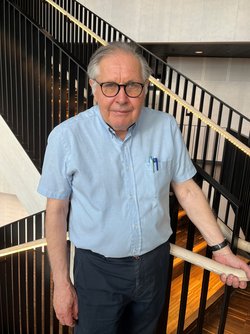
Professor Hugo Lagercrantz was appointed Professor of Pediatrics at Karolinska Institutet in 1989. A pediatrician specializing in neonatology, he served as Clinical Head of Neonatology at Astrid Lindgren Children’s Hospital. His research focuses on the body's stress responses at birth and medical challenges in preterm infants, with a particular emphasis on respiratory control in newborns and Sudden Infant Death Syndrome (SIDS).
In recent years, Professor Lagercrantz has expanded his research to the newborn and preterm brain. By studying how infants process sensory inputs such as odors, pain, and facial recognition, he aims to understand the emergence of consciousness and the effects of abnormal brain development.
He has published approximately 260 scientific articles and has authored several popular science books. In addition to his academic work, he is an active writer of opinion articles on research and healthcare, often advocating for children's perspectives in medical care.
Professor Lagercrantz has held several prestigious leadership positions. He served as Chairman of the Swedish Pediatric Association (2002–2003) and was President of the European Society for Pediatric Research (2004). In February 2005, he was a guest lecturer at the Collège de France in Paris. His contributions to neonatal and pediatric care were recognized in 2004 when he received the Astrid Lindgren World Award for his efforts on behalf of children.
Now an Emeritus Professor, he continues to contribute to the field as Editor-in-Chief of Acta Paediatrica.

Professor Jos Latour is a Professor of Clinical Nursing at the University of Plymouth in the United Kingdom. With over 30 years of experience as a pediatric, neonatal, and critical care nurse, he currently holds a clinical post at Somerset NHS Foundation Trust hospitals, where he serves as the Director of the Clinical School, driving forward clinical research among staff. His research lab, titled “Improving Health Outcomes of Patients and Families in Critical Care Settings Across the Lifespan,” involves 15 PhD students and postdoctoral fellows. Professor Latour is the developer of the EMPATHIC, EMPATHIC-N, and EMPATHIC-30 questionnaires, which measure parent satisfaction in NICUs, PICUs, and pediatric settings; similar studies have been conducted in over 40 countries worldwide. He has published over 215 peer-reviewed papers and serves as an associate editor for several journals. Internationally, Professor Latour holds visiting professorships at institutions including Fudan University in Shanghai, Hunan Children’s Hospital in Changsha, China, and Curtin University in Perth, Australia.
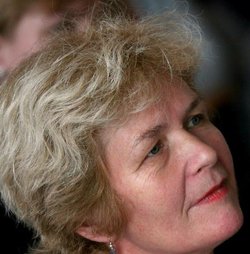
Dr. Aleid Leemhuis, MD, PhD, Associate Professor, is a pediatrician and head of follow-up research on NICU graduates at the Emma Children’s Hospital, Amsterdam University Medical Center.
She served as the chair of the Dutch working group on neonatal follow-up and as a consultant to the Expertise Center for Post-Discharge Developmental Support (EOP-NL, Expertise Centrum Ontwikkelingsondersteuning voor Prematuren).
Through national and international collaborations, she is involved in multidisciplinary research groups primarily focused on improving long-term health and neurodevelopmental outcomes for preterm infants and infants born after fetal growth restriction. This work encompasses primary, secondary, and tertiary prevention of neurodevelopmental disabilities, mainly in children aged 0 to 13.
Dr. Leemhuis also participated in the core writing group for the Dutch guideline on aftercare for preterm and small-for-date neonates—a collaborative effort involving preventive primary healthcare, the Dutch Society of Pediatrics, and the Dutch Association of Parents of Preterm Infants.
She was co-chair of the “Follow-up and Continuing Care” standards during the development of the “European Standards of Care for Newborn Health” (ESCNH).
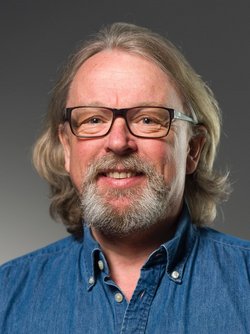
Dr. Atle Moen is a consultant neonatologist at Oslo University Hospital, Rikshospitalet. He spent over 10 years at Drammen Hospital, part of the Vestre Viken Hospital Trust, where he served as a consultant in pediatrics and neonatology, Clinical Director of Neonatology, and Medical Director of the Department of Pediatrics. At Drammen Hospital, he planned and implemented a new single-room Level II NICU in 2012.
His research and clinical interests focus on neonatology, healthcare management, pediatrics, and patient safety.
Dr. Moen is a member of the GFCNI Scientific Advisory Board.
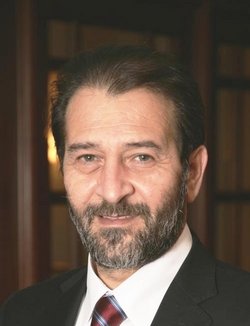
Professor Kypros Nicolaides is a world-renowned fetal medicine expert who currently holds dual appointments as Professor of Fetal Medicine at King’s College London and at University College London. Born in Cyprus, he completed his medical studies at King’s College Hospital, London University in 1978.
Professor Nicolaides has received numerous distinguished awards, including the Ian Donald Gold Award for the Highest Contribution in Ultrasound from the International Society of Ultrasound in Obstetrics & Gynecology, the Eric Saling Award for the Highest Scientific Contribution in Perinatal Medicine from the World Association of Perinatal Medicine, and the Excellence in Letters, Culture and Science Award from the Government of Cyprus. He is an Honorary Fellow of the American Institute of Ultrasound in Medicine, a member of the International Academy of Perinatal Medicine, and holds honorary doctorates in medicine from the Universities of Amsterdam (Netherlands), Athens and Ioannina (Greece), Bucharest (Romania), Jinan (China), Olomouc (Czech Republic), and Warsaw (Poland). Additionally, Professor Nicolaides is a member of the GFCNI Scientific Advisory Board.
With an impressive publication record of 1,161 peer-reviewed papers on fetal diagnosis and therapy, he has also edited and authored several books. He pioneered internet-based courses for healthcare professionals and patients in 20 languages and has provided training in fetal medicine to more than 500 doctors from 50 countries. Professor Nicolaides is the Founder and Chairman of the Fetal Medicine Foundation, an organization dedicated to promoting research and training in fetal medicine worldwide.
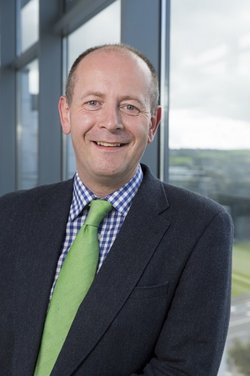
Dr. Daniel Nuzum is a healthcare chaplain and Clinical Pastoral Education supervisor and educator with a specialized interest in perinatal care and pregnancy loss at Cork University Maternity Hospital, Ireland. He earned his PhD from University College Cork in 2016, with a thesis titled “The Spiritual and Professional Impact of Stillbirth.” Dr. Nuzum is an active member of the Pregnancy Loss Research Group at University College Cork and serves as an adjunct lecturer in the College of Medicine and Health there. He has published and presented on perinatal bereavement, communication, stillbirth, and spiritual care.
His research interests also include care following stillbirth and neonatal bereavement, spirituality in specialist palliative care, pastoral education, and healthcare ethics. Additionally, he is a parent to twin boys who spent their early months in a neonatal unit.
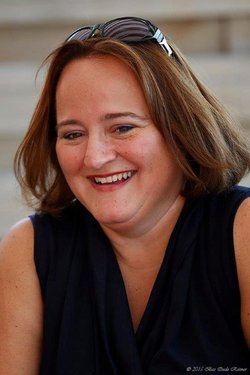
Monique Oude Reimer-van Kilsdonk is a senior NIDCAP trainer at Erasmus MC-Sophia Children’s Hospital in Rotterdam and Co-director of the Sophia NIDCAP & APIB Training Centre in the Netherlands. Currently, she works as a Clinical Development Consultant in the NICU, where she supports units in implementing individualized care for patients and their families.
Together with her colleague Inga Warren, a Senior NIDCAP Trainer in London, she developed the Family and Infant Neurodevelopment Education (FINE) course. Her interests include nursing, nursing education and assessment, primary care and family nursing, as well as clinical teaching.
Monique has delivered numerous lectures in English, German, and Dutch at various conferences over recent years.
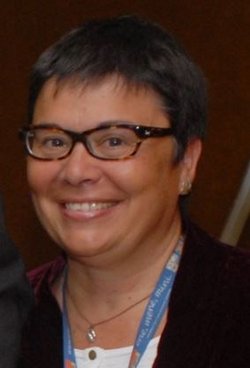
Associate Professor Carmen Pallás-Alonso, PhD, MD, is the Head of the Neonatal Unit at Hospital Universitario 12 de Octubre in Madrid, Spain. She is an Associate Professor of Pediatrics at the Medical School of the Complutense University in Madrid and a member of the Spanish group Preventive Activities for Children and Adolescents (PrevInfad). Additionally, she serves as the National President of the Spanish Baby Friendly Hospital Initiative (BFHI).
Under her leadership, the Neonatal Unit at Hospital 12 de Octubre has pioneered a developmental and supportive care concept in Spain and is one of only two Spanish NIDCAP training centers. Her team established the country’s first human milk bank, and the unit has been accredited by UNICEF as a BFHI hospital. The neonatal team conducts research on human milk handling in neonatal units and milk banks, as well as on kangaroo care, developmental supportive care, and patient- and family-centered care.
Associate Professor Pallás-Alonso has been honored with the Queen Sofia Research Award in 2000 for a follow-up program for preterm infants weighing less than 1,500 grams and the National Quality Award in 2006 by the Spanish Ministry of Health. She is the author of more than 100 papers and numerous book chapters.
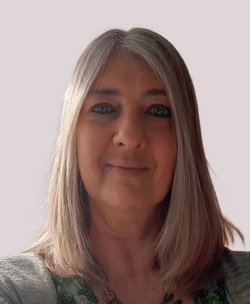
Dr. Julia Petty, RGN/RSCN, MSc, BSc, MA, EdD, is an Associate Professor in Learning & Teaching and a Senior Lecturer in Children’s Nursing at the University of Hertfordshire in Hatfield, England. With over 16 years of experience in both clinical and academic settings, she is a dedicated educator in neonatal and children’s nursing. Her research focuses on exploring parents’ experiences of neonatal care, communication with premature infants, interactions between parents and neonatal staff, and the development of digital educational resources informed by both parent and staff narratives. Dr. Petty has published extensively in neonatal, child health, and educational peer-reviewed journals and has presented at numerous national and international conferences. She has also authored and edited leading neonatal nursing textbooks. Additionally, Dr. Petty serves as a Trustee on the Board of the UK Neonatal Nurses Association and as Vice President for the Council of International Neonatal Nurses (COINN), contributing to strategic initiatives that enhance neonatal education and research for the benefit of staff, students, infants, and families.
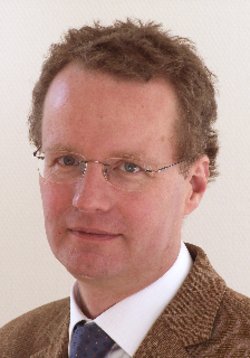
Professor Christian F. Poets completed his medical training at Hanover Medical School in Germany and the National Heart & Lung Institute in London, UK. He then served as a consultant pediatrician at Hanover Medical School before being appointed Professor and Medical Director of the Department of Neonatology at the University of Tübingen, Germany, in 2002. In 2007, he declined an offer to head the Department of Neonatology at the Charité in Berlin to continue his work in Tübingen.
Professor Poets’ primary research interests include advancing neonatology through evidence-based medicine—particularly through randomized controlled trials—investigating breathing control and its disorders, such as apnea of prematurity and sudden infant death syndrome, as well as surfactant research and neonatal immunology. His studies on factors influencing neonatal outcomes have demonstrated that preterm infants fare better when treated in larger perinatal centers compared to smaller hospitals.
He served as Chairman of the German Society for Neonatology and Pediatric Intensive Care from 2004 to 2009.
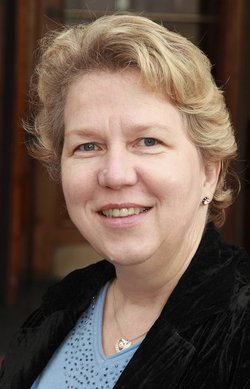
Professor Dr. Heike Rabe is Professor of Perinatal Medicine at Brighton and Sussex Medical School, Honorary Consultant Neonatologist, and Director for Research & Innovation – Child Health at University Hospitals Sussex in Brighton, United Kingdom.
Her research interests include the neonatal brain, hematology, oxygen transport, and microcirculation. She is actively conducting studies in these areas, particularly on the role of optimal cord management in improving survival rates for preterm infants. She also researches the use of non-invasive devices in neonatology.
Professor Rabe is a collaborator in the H2020-RISEinFAMILY consortium (www.riseinfamily.eu), which studies the implementation of Family Integrated Care across eight countries. She is a member of several national and international scientific societies and a Fellow of the Royal College of Pediatrics and Child Health (UK). As a member of the European Society for Pediatric Research (ESPR), she served as Vice President and is a founding board member of the European School of Neonatology. She is an honorary member of the American Pediatric Society and the Romanian Society of Fetal and Neonatal Medicine.
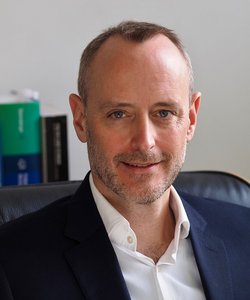
Charles Christoph Roehr, MD, PhD, is a clinician-scientist and Professor of Neonatal and Perinatal Medicine at the University of Bristol. He also serves as a Clinical Consultant to the National Perinatal Epidemiology Unit – Clinical Trials Unit at the University of Oxford and works at Southmead Hospital, North Bristol NHS Trust as an Honorary Consultant Neonatologist. His expertise centers on understanding the cardiopulmonary adaptations at birth and optimizing support for newborn infants. With a strong focus on translational research, he designs and conducts pragmatic studies to address clinically relevant questions that improve the lives of babies and their families. As a passionate advocate for active patient and parent partnerships in neonatology, Charles is proud of his long-standing role as a scientific advisor to GFCNI.
As the immediate-past President of Europe’s largest pediatric research network, the European Society for Pediatric Research (ESPR), he continues to contribute to ESPR as the current Chair of the European Board of Neonatal and Child Health Research (EBNCHR). In this role, he leads efforts to harmonize specialist training for neonatology in Europe and oversees the development of the European School of Neonatology (ESN) Masters Program (https://esn-education.org).
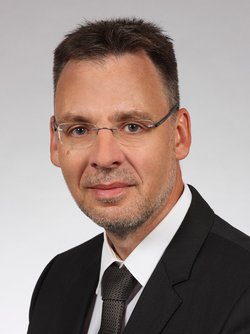
Mario Rüdiger, MD, is the W3 Professor for Feto-Neonatal Health and Director of the Saxony Center for Feto-Neonatal Health at the Technical University Dresden. He is also the Head of the Department for Neonatology and Pediatric Intensive Care Medicine at the Children’s Clinic of the University Hospital Carl Gustav Carus in Dresden, and serves as the President of the German Society for Perinatal Medicine.
Professor Rüdiger trained as a pediatrician and neonatologist at the University Hospital Charité in Berlin, where he began his scientific career focusing on lung injury in preterm newborns. After a decade in Berlin, he moved to Austria and worked as a Consultant in Neonatology at the University Hospital in Innsbruck from 2004 to 2008, during which time he also led a pulmonary research group. In 2008, he joined TU Dresden as a Professor of Pediatrics, and in 2021 he was appointed Professor for Feto-Neonatal Health.
His clinical and scientific expertise centers on preventing chronic lung disease in preterm infants, improving delivery room management, and advancing regenerative therapies. His laboratory is engaged in international collaborations to translate regenerative therapies into clinical neonatal care, including the testing of patented mesenchymal stem cells (MSC) in preterm infants and adults with severe sepsis.
Professor Rüdiger is a member of the Neonatal Task Force of ILCOR, contributes to the European Resuscitation Council’s guidelines on neonatal resuscitation, serves as President of the German Society for Perinatal Medicine (DGPM), and is the Founding Chair of the German Foundation for the Sick Newborn (DSKN). He is also the author of two neonatology podcasts, NeoCast and Neonatology Now. In 2024, he was honored by the Ministry of Health of the Republic of Uzbekistan with an appointment as Honorary Professor at the Center for the Development of Professional Qualifications of Medical Personnel.
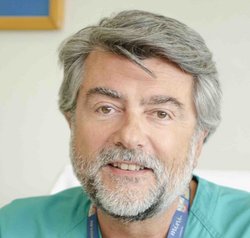
Professor Manuel Sanchez Luna is a Full Professor in Pediatrics at the Complutense University of Madrid, Spain, and serves as the Medical Director of the Neonatology Division and the Neonatal Intensive Care Unit at Hospital General Universitario Gregorio Marañón. He holds a PhD, an MD in Pediatrics, and an MBA in Medical Governance and Hospital Administration. Specialized in neonatology, his research interests include bronchopulmonary dysplasia, respiratory physiology, sepsis, shock, and personalized nutrition. He has made significant contributions to national and international conferences and has published more than 240 articles and book chapters.
Professor Sanchez Luna is the President of the Spanish National Society of Neonatology (SENEO), Chair of the Neonatal Intensive Care section of the European Pediatric and Neonatal Intensive Care network (ESPNIC), a Regular Fellow of the International Academy of Perinatal Medicine, and an active member of ESPR, ESICM, ESPNIC, and ESN.
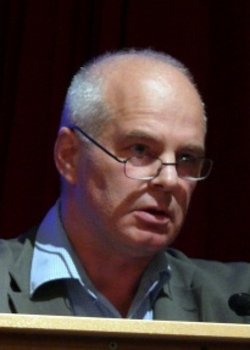
Professor Ola Didrik Saugstad is a renowned Norwegian pediatrician, serving as a Professor of Pediatrics at the University of Oslo, a Consultant in Newborn Medicine, and the Director of the Department of Pediatric Research at the National Hospital.
He completed his medical studies in Oslo in 1973 and earned his doctoral research degree (dr. med.) in 1977, becoming a Consultant in 1986 and a Professor in 1991.
With more than 250 articles and book chapters published in leading journals and books, Professor Saugstad is recognized as one of Norway's foremost medical researchers. He has served on the board of the European Society of Pediatric Research (1987–1990), the International Pediatric Foundation (2001–2004), and was President of the European Association of Perinatal Medicine (2002–2004). Additionally, he is an editor or board member for several medical journals, has acted as a referee for over 30 journals, and has received multiple awards. He is also an honorary member of several medical societies and has supervised 20 doctoral (dr. med./PhD) candidates.
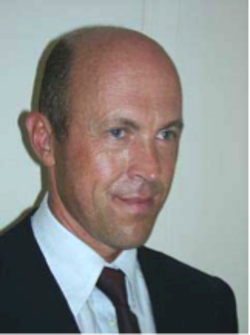
Umberto Simeoni is a pediatrician and neonatologist with extensive experience in clinical and academic settings. He has served as a Professor of Pediatrics at Louis Pasteur University and the University Hospital of Strasbourg in France, at Aix-Marseille University and AP-HM University Hospital—where he headed the Parents-Children Department—and at Lausanne University Hospital and the University of Lausanne in Switzerland, where he was Chief of the Division of Pediatrics and led a DOHaD research laboratory.
His clinical interests include child development, neonatal and perinatal medicine, and perinatal bioethics. His research is focused on the Developmental Origins of Health and Disease (DOHaD), with a special emphasis on the developmental programming of the cardiovascular system in perinatal conditions such as intrauterine growth restriction, preterm birth, and exposure to maternal overweight, obesity, or gestational diabetes. Additionally, he is deeply interested in perinatal bioethics.
Professor Simeoni has authored or co-authored more than 250 peer-reviewed articles, several books on neonatology, and has delivered over 300 invited lectures. He is a Past-President of the European Association of Perinatal Medicine and of the Société Francophone DOHaD.
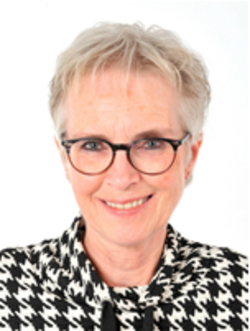
Professor Agnes van den Hoogen is a professor at the University Medical Centre Utrecht in Neonatology, affiliated with Wilhelmina Children’s Hospital, and a senior academic lecturer in Clinical Health Sciences at Utrecht University in The Netherlands. She holds a degree in Clinical Health Sciences from Cardiff University (Wales, UK) and earned her PhD at Utrecht University with a thesis on infections in neonatal intensive care—focusing on prevalence, prevention, and antibiotic use. Her research interests include parent and family participation, vascular access, infection prevention, and sleep across all areas of clinical care. Her professional roles include:
She is a past president of the European Society for Paediatric and Neonatal Intensive Care (ESPNIC) and contributes to WHO initiatives aimed at reducing global maternal, neonatal, and child morbidity and mortality. She is also experienced in organizing high-level educational congresses for various societies.
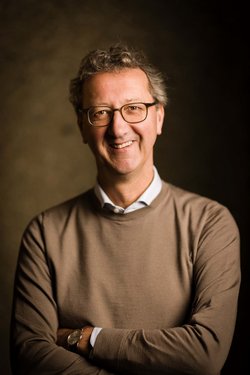
Hans van Goudoever is a Professor of Pediatrics at the University of Amsterdam and the Vrije Universiteit. He served as the dean of the Faculty of Medicine and director of the Emma Children’s Hospital of Amsterdam before assuming his current role as Chair of the Board of Directors at Amsterdam University Medical Center. Amsterdam UMC is the largest medical center in the Netherlands, employing nearly 20,000 people and serving approximately 5,000 students. Hans received his medical education and pediatric training at Erasmus University in Rotterdam. From 1998 to 2000, he held a postdoctoral position in the laboratory of the late Peter Reeds at Baylor College of Medicine’s Children’s Nutrition Research Center in Houston, Texas. He has served as a board member of the International Pediatric Research Foundation and the European Society of Pediatric Research, as well as chairman of the ESPGHAN Committee on Nutrition.
His interests include neonatal nutrition, gastroenterology, and metabolism. He has published over 500 peer-reviewed papers and received numerous national and international grants, including FP-7 EU funding. In 2011, he founded the Dutch Human Milk Bank, where he continues to serve as director. This national milk bank supplies all Dutch NICUs with donor milk.

Dr. Salimah Walani, PhD, MPH, MSN, RN, is the Dean of the Aga Khan University (AKU) School of Nursing and Midwifery in Pakistan. She brings extensive global health and academic experience to her role. Before joining AKU in August 2024, Dr. Walani served as the Global Policy and Advocacy Advisor at MiracleFeet—a US-based nonprofit organization with programs in 35 countries. Prior to that, she was Vice President of Global Programs at the March of Dimes Foundation in the United States, where she led the organization’s maternal and newborn health partnerships in low- and middle-income countries.
In addition to these positions, she has held leadership, advisory, and consultative roles with organizations such as the New York City Department of Health, the World Health Organization, and New York University.
Originally from Pakistan, Dr. Walani graduated from AKU’s School of Nursing in 1987 and later earned a Master of Science in Nursing from Simmons University in Boston, a Master of Public Health from Harvard University, and a PhD from New York University.
Dr. Walani is renowned for her advocacy on the global birth defects agenda. She has served on several maternal and newborn health technical advisory groups, is a member of the World Health Organization's Technical Advisory Group for Birth Defects, sits on the WHO’s steering committee for developing a framework for newborn screening, diagnosis, and management of birth defects, and is an honorary member of the International Clearinghouse for Birth Defects Surveillance and Research. She also serves on the editorial board of Policy, Politics & Nursing Practice.
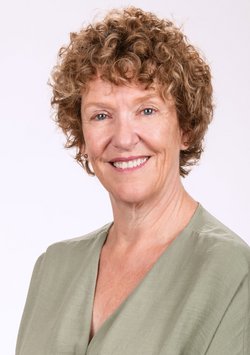
Karen Walker is a Clinical Professor and the current President of the Council of International Neonatal Nurses (COINN). She previously served as President of the Australian College of Neonatal Nurses and is a founding member of the Alliance for Global Neonatal Nurses in the United States. With over 30 years of experience as a neonatal nurse researcher, Karen has forged extensive collaborations at the state, national, and international levels, resulting in more than 100 publications.
Her passion lies in advancing the role of neonatal nurses in delivering quality care to small and sick newborns, fostering interdisciplinary collaboration, and advocating for a stronger health workforce. She also serves as a nurse advisor in establishing a School of Nursing in remote Papua New Guinea. A strong advocate for parent involvement as key partners in healthcare, Karen is committed to empowering women and girls while ensuring equitable access to universal healthcare. Additionally, she serves as the Vice Chair of the Knowledge and Accountability Working Group for the Partnership for Maternal, Newborn, Child, and Adolescent Health.
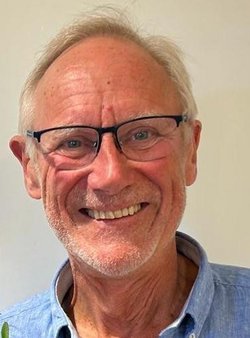
Dr. Björn Westrup is a senior consultant in neonatology and, in 1999, founded the Karolinska NIDCAP Training & Research Center at Astrid Lindgren Children’s Hospital, Karolinska University Hospital, and the Karolinska Institute.
Since the early 1990s, Dr. Westrup has been a pioneer in the scientific evaluation and dissemination of Infant- and Family-Centered Developmental Care (IFCDC). His work has focused on clinical randomized controlled trials investigating the effects of parental involvement in newborn care, the benefits of family-centered supportive hospital systems, and the impact of nursery design. He was one of the initiators and principal investigators in the WHO iKMC Study—a large multicenter trial conducted in low-income countries involving very low birth weight infants receiving immediate skin-to-skin contact and couplet care, a model that minimizes separation by providing medical care for both the infant and the mother within the neonatal unit. The notable decrease in neonatal mortality observed in the study significantly influenced the 2022 WHO recommendations for the care of preterm or low-birth-weight infants. Similarly, Dr. Westrup initiated and sponsored a study on immediate skin-to-skin contact in a high-income Scandinavian setting, which reported improvements in infant physiological stabilization, behavioral and cognitive development, and parent-infant attunement. His research further promoted the WHO 2023 vision, which states that “mothers, newborns, and families form an inseparable center around which the entire maternal-newborn service delivery is organized.”
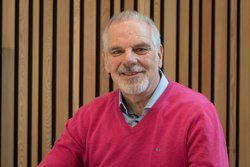
Dieter Wolke, PhD, Dr h.c. mult, is a Professor of Developmental Psychology and Individual Differences at the University of Warwick’s Department of Psychology. He leads the Warwick Lifecourse and Neonatal Group (WarwickLNG) and is a member of the Centre for Early Life.
His research focuses on developmental pathways from pregnancy and birth to adult well-being and developmental psychopathology. He investigates biologically at‐risk children (including very preterm children), bullying among peers and siblings, infant regulatory issues (such as crying, feeding, and sleeping difficulties), and parenting. He has a particular interest in how preterm birth affects brain and psychological development, as well as overall quality of life. Professor Wolke is involved in several follow-up studies of preterm children in the United Kingdom and Germany, including the EPICure Study, the Bavarian Longitudinal Study, and the RECAP-preterm project, which brings together multiple preterm studies. He is currently funded by an ERC-Advanced grant underwritten by UKRI.
With over 450 research papers published and a high citation record, Professor Wolke serves on the editorial boards of several journals and on various scientific boards, including GFCNI’s Scientific Advisory Board. He has received honorary doctorates from Ruhr University Bochum and the University of Helsinki and was honored in 2020 with the British Psychological Society’s Distinguished Contributions to British Developmental Psychology award.
© 2026 GFCNI. All Rights Reserved.